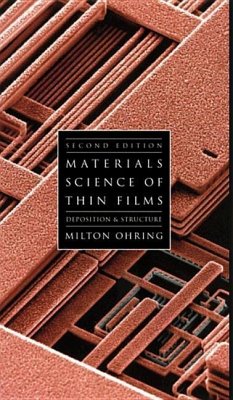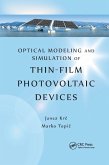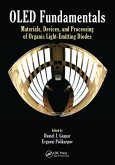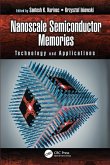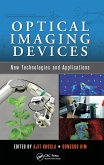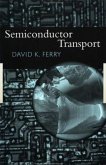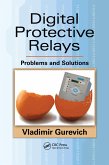This is the first book that can be considered a textbook on thin film science, complete with exercises at the end of each chapter. Ohring has contributed many highly regarded reference books to the AP list, including Reliability and Failure of Electronic Materials and the Engineering Science of Thin Films. The knowledge base is intended for science and engineering students in advanced undergraduate or first-year graduate level courses on thin films and scientists and engineers who are entering or require an overview of the field. Since 1992, when the book was first published, the field of thin films has expanded tremendously, especially with regard to technological applications. The second edition will bring the book up-to-date with regard to these advances. Most chapters have been greatly updated, and several new chapters have been added.
Praise for the First Edition"There is a need for new, comprehensive texts and references in [advanced materials processing] and its subdisciplines. This has been especially true for thin films, and of the several recent books on the subject, Milton Ohring's extensive volume is without a doubt the best." --NATURE
"Ohring's very timely and excellent book fills a long-existing need in materials education at the graduate level....The book is very well written, presented, and illustrated. It will prove useful to the scientist or engineer in coatings, to the college senior working on a project, and especially to graduate students in materials science and engineering and to faculty involved in teaching or research in the area of thin films. An excellent acquisition for an academic library." --CHOICE
"The author writes in a fluent and engaging style which the student should have little trouble in understanding. His examples and technical insights do a great deal to make his text readable..." --R.J. BORG
"The combination of teaching, research, and industrial involvement has provide Profesor Ohring with a broad perspective of thin film science and technoloy and tremendous insight into the needs of students entering this exciting field. His insight and experience are quite evident in this textbook." --JOHN L. VOSSEN, John Vossen Associates, Inc.
"The text is easy to read, technically correct, unfolds in a logical manner, and includes a large number of important features related to thin films. I congratulate the author for proposing a thoughtful treatment of this increasingly popular subject." --CHARLES L. BAUER, Carnegie Mellon University
"Professor Milt Ohring has a long and unique perspective of thin film science from his dealings with academia and industry. This book represents his accumulated experiences of teaching and research. Thin film science is at the heart of many of our most advanced technologies. This book should prove invaluable not only to the university student but also to the professional who needs a broad overview of this important field." --J.M. POATE, AT&T Bell Laboratories
"Ohring's very timely and excellent book fills a long-existing need in materials education at the graduate level....The book is very well written, presented, and illustrated. It will prove useful to the scientist or engineer in coatings, to the college senior working on a project, and especially to graduate students in materials science and engineering and to faculty involved in teaching or research in the area of thin films. An excellent acquisition for an academic library." --CHOICE
"The author writes in a fluent and engaging style which the student should have little trouble in understanding. His examples and technical insights do a great deal to make his text readable..." --R.J. BORG
"The combination of teaching, research, and industrial involvement has provide Profesor Ohring with a broad perspective of thin film science and technoloy and tremendous insight into the needs of students entering this exciting field. His insight and experience are quite evident in this textbook." --JOHN L. VOSSEN, John Vossen Associates, Inc.
"The text is easy to read, technically correct, unfolds in a logical manner, and includes a large number of important features related to thin films. I congratulate the author for proposing a thoughtful treatment of this increasingly popular subject." --CHARLES L. BAUER, Carnegie Mellon University
"Professor Milt Ohring has a long and unique perspective of thin film science from his dealings with academia and industry. This book represents his accumulated experiences of teaching and research. Thin film science is at the heart of many of our most advanced technologies. This book should prove invaluable not only to the university student but also to the professional who needs a broad overview of this important field." --J.M. POATE, AT&T Bell Laboratories

